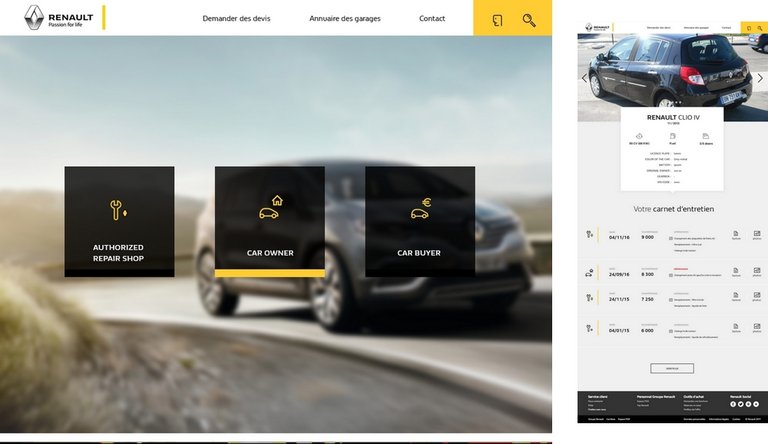If I say "blockchain", you would probably think of cryptocurrencies, dematerialized payments or decentralized applications. But could the blockchain be useful to personal transportation? The answer is yes! The French car manufacturer Renault unveiled a prototype of dematerialized car maintenance log.
A digital car maintenance log? Why ?
With this new digital tool, future customers will be able to upload and store all useful data in a single digital and securized maintenance log. It will regroup data from the manufacturer, the repair shops and the insurance companies. The Renault's maintenance log will offer some advantages over a classical maintenance book : the dematerialization (through the cloud), more security (thanks to the blockchain), faster diagnostics (using different data on reliability for each model), and more trust.

Renault is working on this project in partnership with Microsoft, VISEO (a French advising company), and BitSE (a Chinese company specialized in blockchain). The project was supervised by VISEO. Microsoft provided an access to its Azure Blockchain technology.
What's next? Could other car brands follow?
The Renault Group owns the brands Renault, Dacia and Renault Samsung Motors. Through the Renault–Nissan Alliance, the digital maintenance log could also be implemented into the cars from Nissan and its subsidiary brands (Infiniti, Nismo and Datsun).
The blockchain is entering the car industry! It could be a great asset for improving the security of connected cars. Cars are more connected, and security should matter a lot. In 2015, WIRED and security experts made an experiment: they hacked a Jeep remotely while it was on the highway. In September 2016, Chinese hacker proved they could hack a Tesla Model S. The purpose of these experiments was to show than cars need a strong security.
After watching these videos, you won't probably want to trust a connected car. Unless it has a very good security, for instance, a blockchain-based technology.
The blockchain into the car industry, and it won't stop know!
Sources
http://media.renault.com/global/fr-fr/renaultgroup/Media/PressRelease.aspx?mediaid=94238&nodeid=-1
http://www.viseo.com/fr/communique-de-presse/groupe-renault-innove-avec-viseo-et-microsoft-sur-la-blockchain
https://www.wired.com/2015/07/hackers-remotely-kill-jeep-highway/
Congratulations @lefactuoscope! You have completed some achievement on Steemit and have been rewarded with new badge(s) :
Click on any badge to view your own Board of Honor on SteemitBoard.
For more information about SteemitBoard, click here
If you no longer want to receive notifications, reply to this comment with the word
STOPWow,I was considering getting a dodge with uconnect, now I think i should go for the 70's classic model instead.
Security is a major concern with connected cars. If the public don't trust connected vehicles, people won't buy them. So, the blockchain could be a good solution to offer a strong security and gain trust from buyers.
However, I'm wondering if the industry and the insurance companies will encourage the development of digital maintenance logs and connected cars. If they think these technologies could reduce fraud and lesser the number of accidents, they will probably encourage people to buy connected cars.
There is another interest for insurance companies to push the market to adopt connected cars: collecting data. The personal data could be used to adapt their contracts: if you drive safe, you pay less. If you drive safely, you would pay less on your insurance. If you drive with a dangerous behavior and if you were involved in several accidents, you would pay more. But the various data collected by a connected car could also be sold to third-party companies by the insurances.
Buyers and governments should care about this problematic to avoid abuses with drivers data.